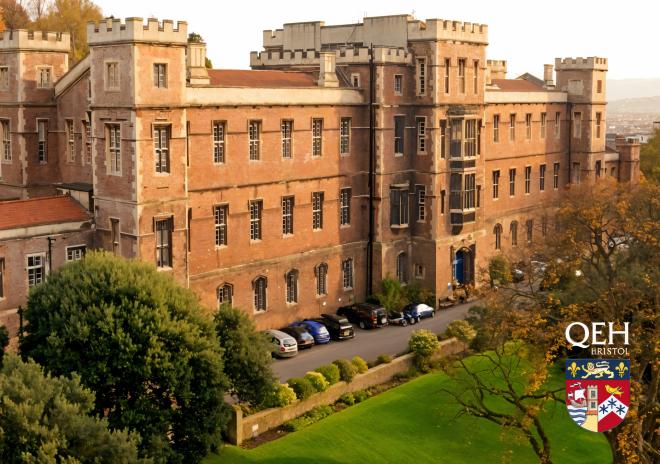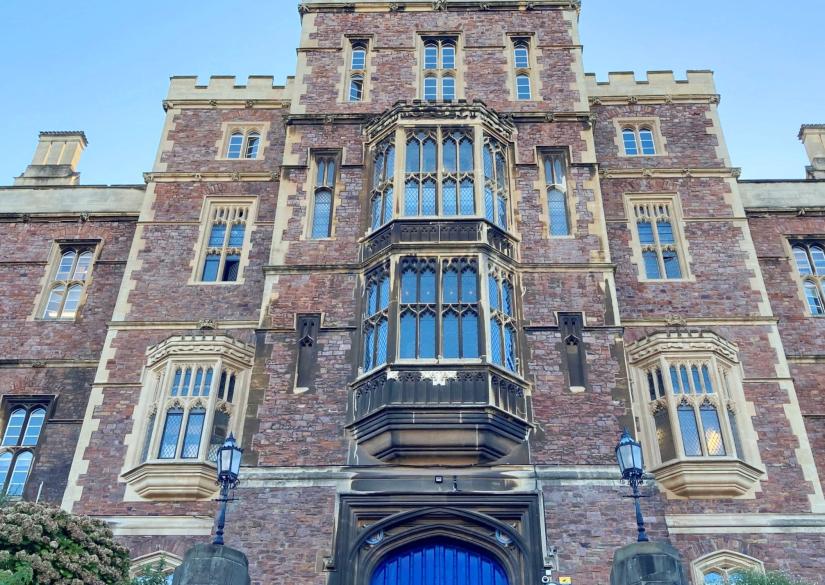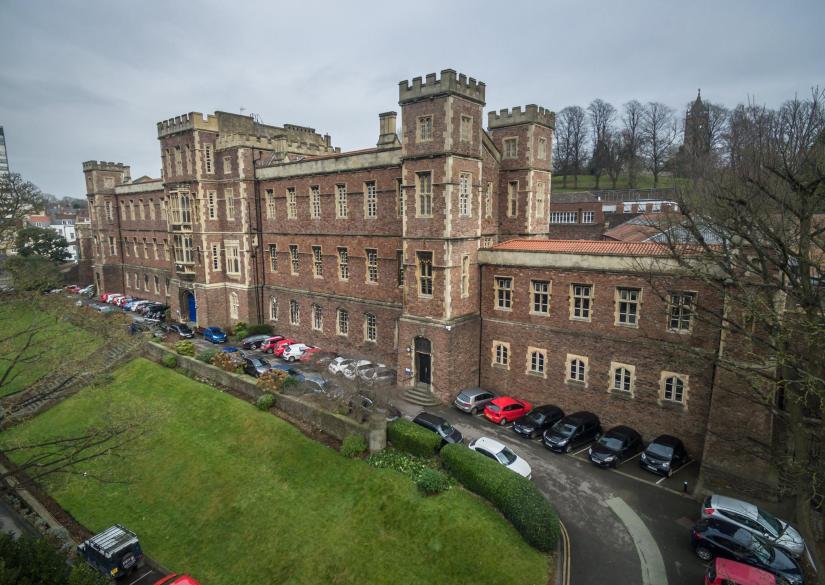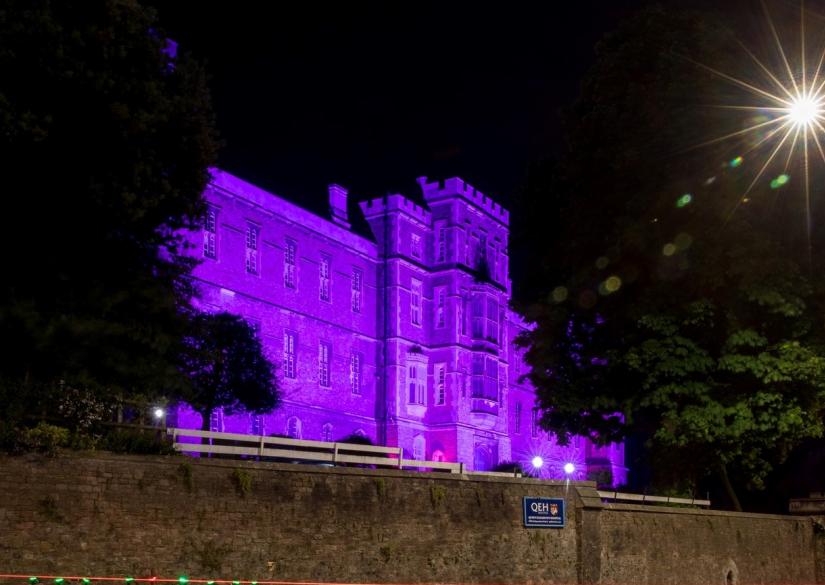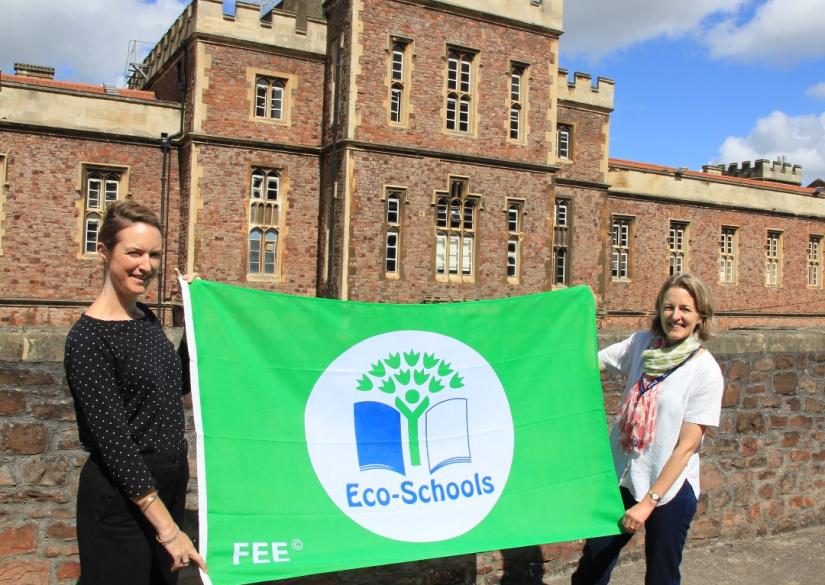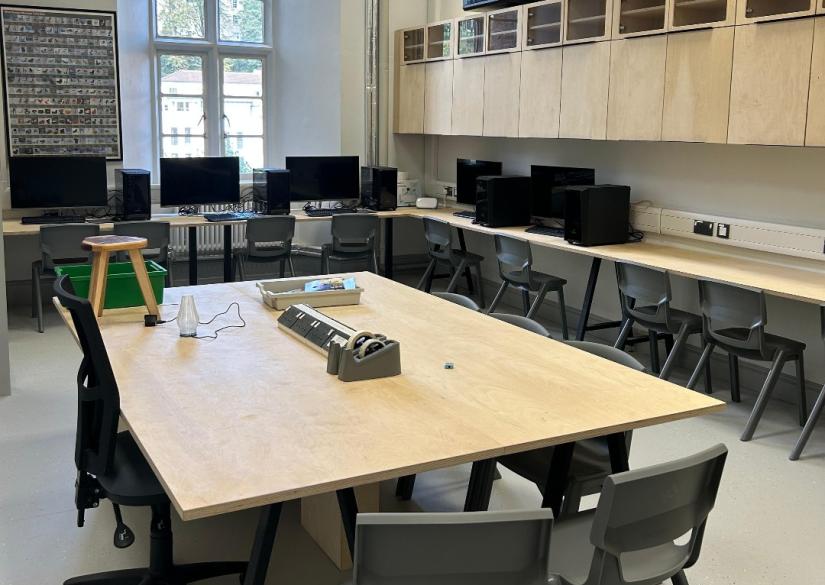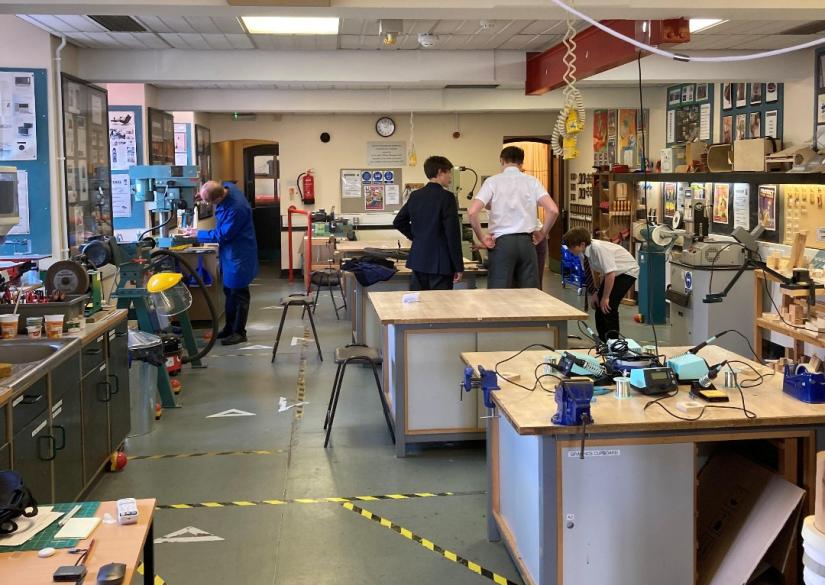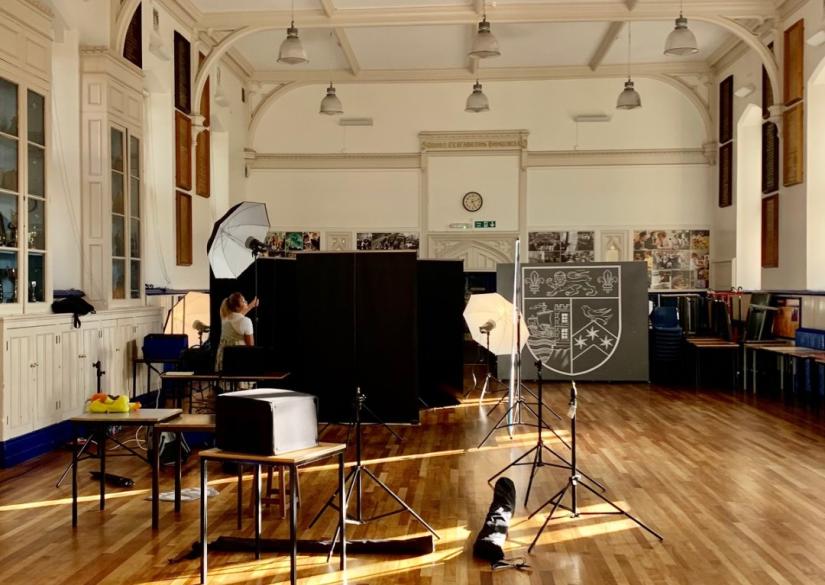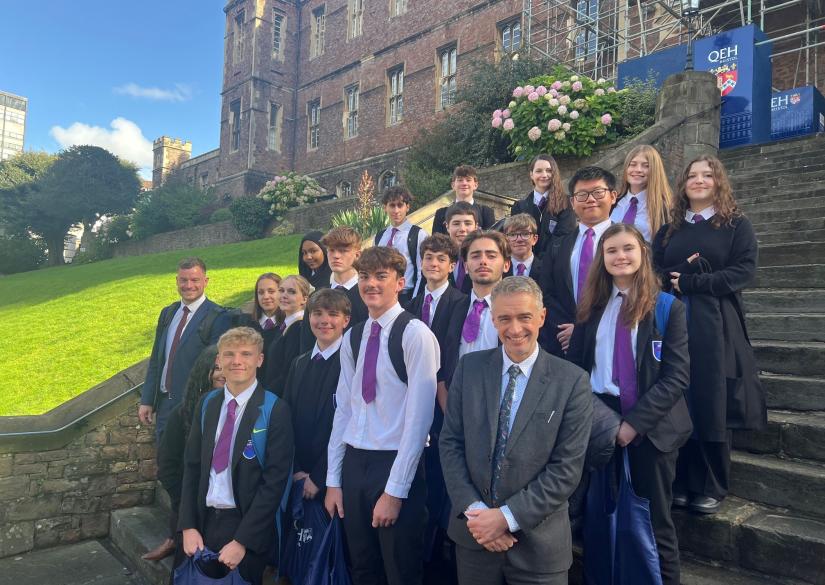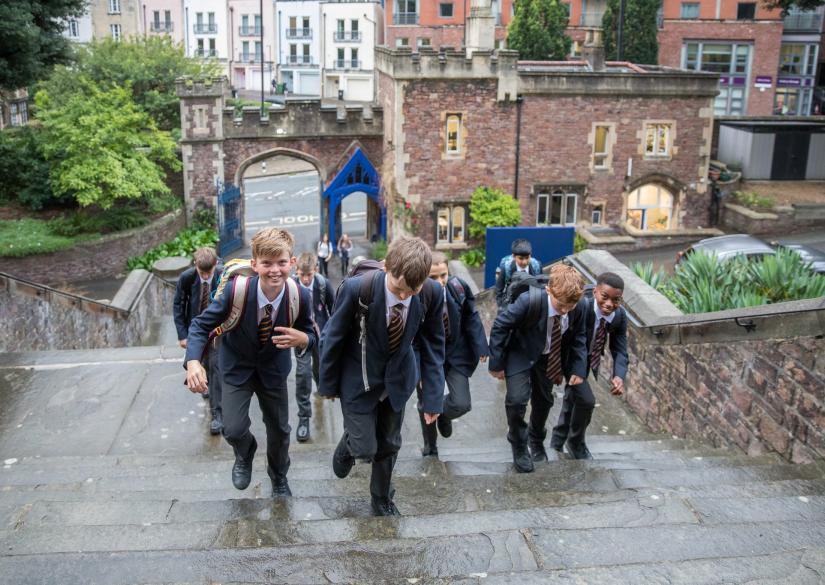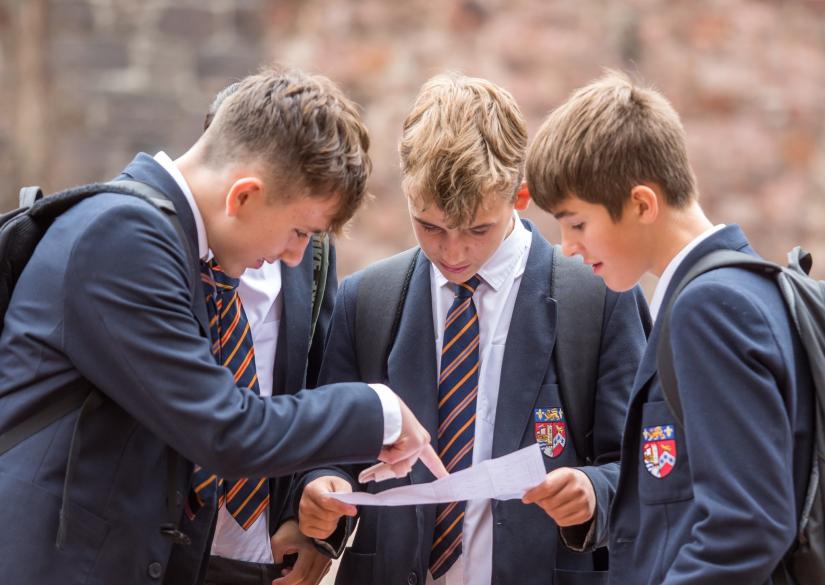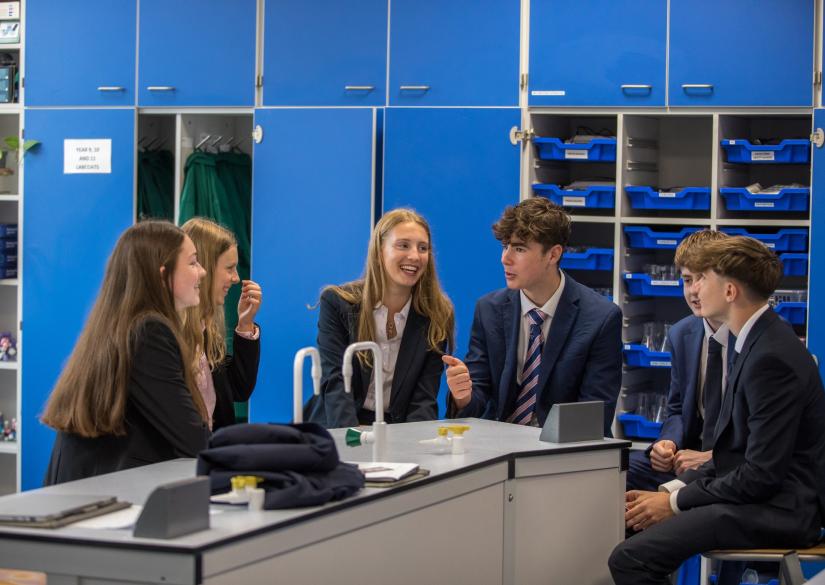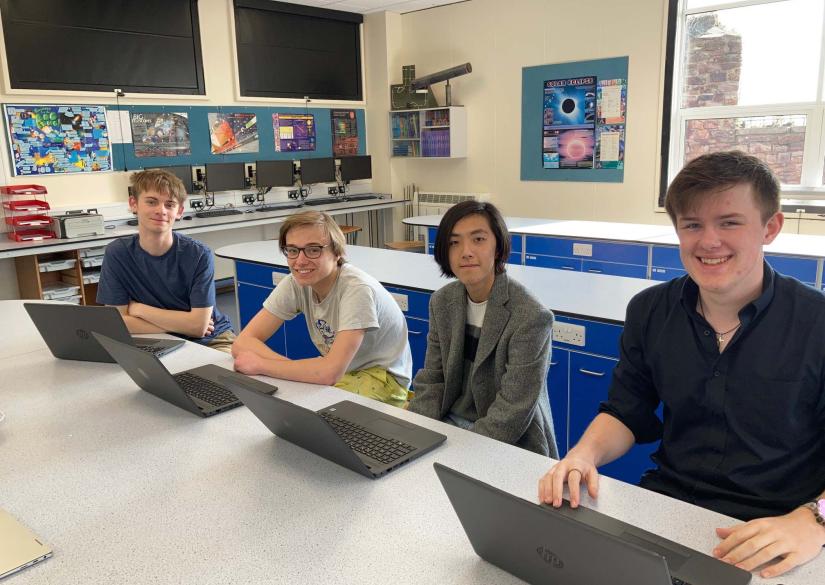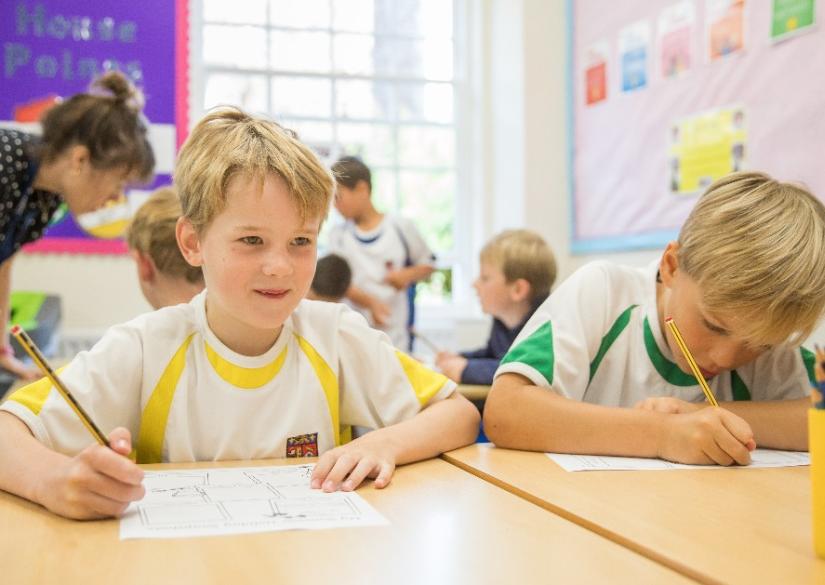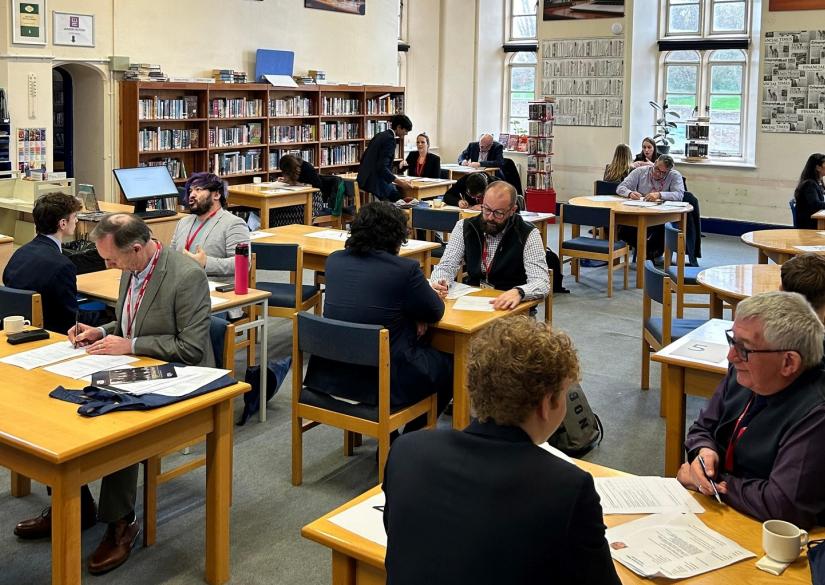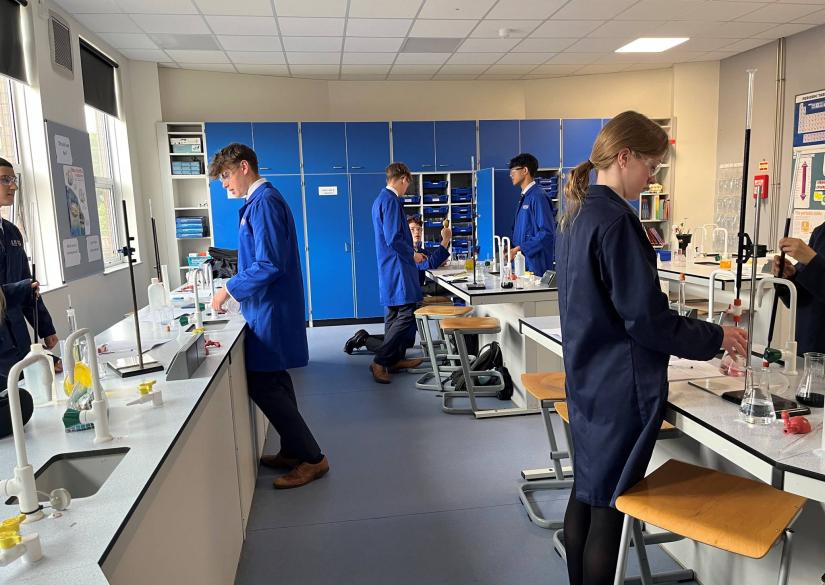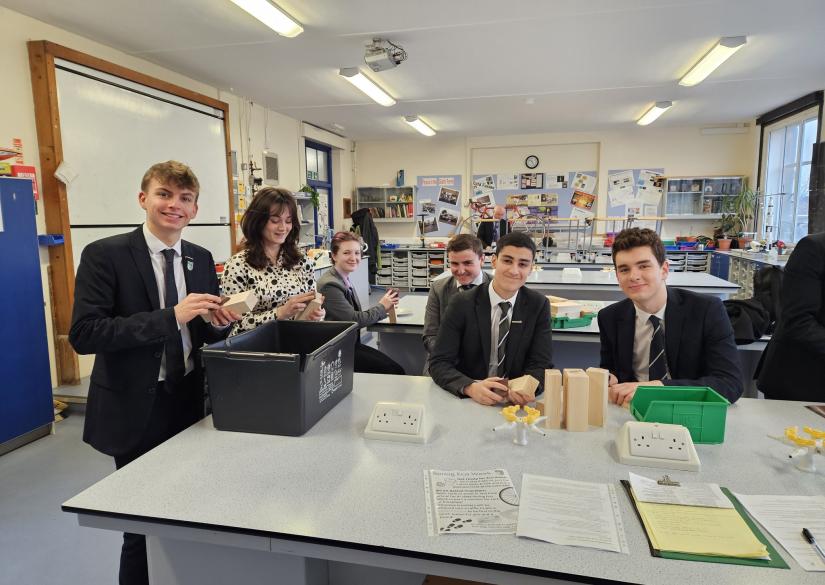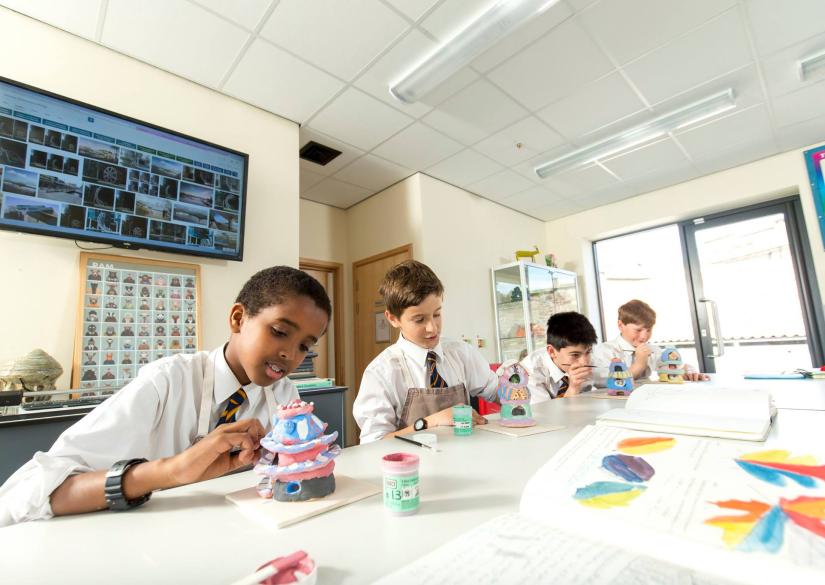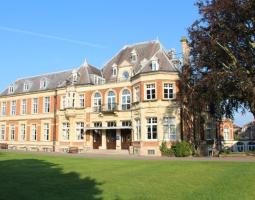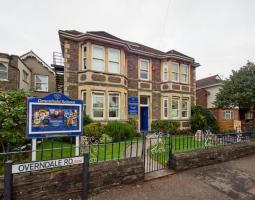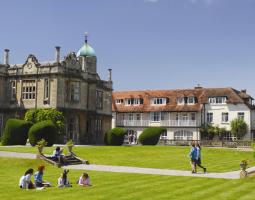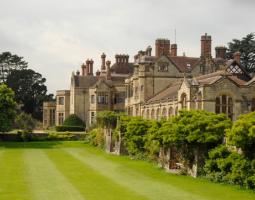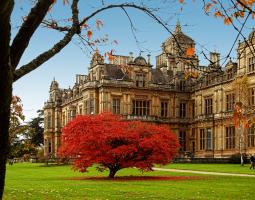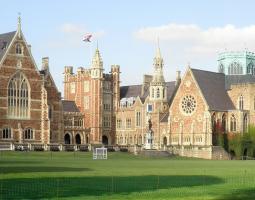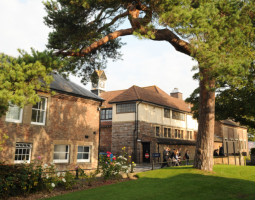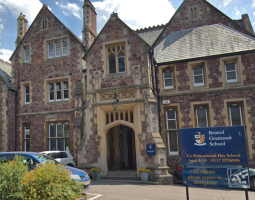Queen Elisabeth's Hospital - Independent School Bristol
Programs and prices, tuition fees in Queen Elisabeth's Hospital - Independent School Bristol
Junior School
- Age – from 7 to 11 years,
- The term of study is four years.
The Junior School stage at QEH includes education in grades 3-6.
The curriculum is based on direct experience with the involvement of various invited specialists, the use of special and creative teaching methods. Educators provide boys with the opportunity to receive education in same-sex groups, which allows them to develop their academic, athletic, dramatic, and musical talents without looking back at stereotypes about "feminine" and "male" hobbies.
Thanks to small educational groups, each student receives individual support from assistant teachers, educational staff, heads of academic departments. Over the course of four years, students will have to master many disciplines in order to determine the most interesting one for them in the future. The curriculum will include subject areas such as:
- English language
- Science
- Mathematics
- Humanities
- Informatics, Computer Science.
In addition to standard subject classes, students will attend seminars to improve learning, memorization, and working with various resources.
Middle School
- Age – from 12 years old,
- The term of study is five years.
The educational course consists of grades from 7 to 11. Students expect a rich academic plan, a variety of opportunities for additional self-study, the development of strengths through extracurricular activities, and individual tutoring.
The curriculum includes the following subject areas:
- Creative Arts,
- Humanities
- Languages
- Science
- Mathematics
- Computer technologies.
In addition to them, students attend classes to improve their learning, sports training in the direction they like, participate in Olympiads and scholarship programs for especially gifted students.
Sixth Form, Graduating Classes
- Age – from 16 years old,
- The term of study is two years.
The Sixth Form is the final stage of school education, during which international students are effectively prepared for admission to universities. For two years, boys and girls study together, creating a friendly atmosphere and using each other's support. The teaching staff allocates many hours for individual consultations on the subjects that students choose to pass at the final exams. The curriculum has a wide variety of disciplines available for study, so each student will be able to put together an individual plan for their interests and adjust the academic load.
In Year 12, students will have to study four A-Level subjects, and in Year 13, they will continue to study three of them. The list of subjects includes more than 29 fields of science, including:
- Art,
- Biology,
- Business,
- Chemistry,
- Classical civilizations,
- Computer Science,
- Drama, theatrical art,
- Economics,
- English language,
- Filmmaking,
- Geography,
- Politics,
- English literature,
- Latin language,
- History.
Employees of academic departments help future graduates navigate the process of admission to the university by providing personal sessions that will analyze the stages of enrollment, the correct writing of a resume and personal application, and possible entrance exams.
Description of Queen Elisabeth's Hospital - Independent School Bristol
- Location: Bristol, England,
- Year of foundation: 1590,
- Number of students: about 770,
- Language of instruction: English,
- Type of education: partially mixed.
Queen Elisabeth's Hospital (QEH) is a private day school with a partially mixed type of education: in grades 3 to 11, only boys study, and in the Sixth Form, in grades 12 and 13, boys and girls study together.
Founded in 1590, the educational institution has a centuries-old history and traditions. Initially, children from poor families or orphans studied here, and over time, the school was transformed into an all-male institution for everyone. To date, about 108 primary school pupils, more than 660 international high school students are undergoing educational process within the walls of educational buildings. The student body is represented not only by local children - every year QEH opens its doors to dozens of foreign representatives to give them a high-quality English-language education.
In addition to modern approaches to the academic process, a variety of resources, students also have access to various extracurricular opportunities: from thematic clubs, creative communities and sports sections to participation in large-scale competitions and off-campus events. QEH management and educational staff actively support any endeavors of students, allowing them to unleash their potential, look for new talents in themselves, and fully participate in the activities of the school community.
Faculties and colleges
The school provides three stages of schooling:
- Primary grades — from 3 to 6,
- Senior grades — from 7 to 11,
- Sixth Form – Grades 12 to 13.
A summer camp is also organized on campus.
Things to know about
For a long time, the main color of school uniforms was blue. It was retired in 2008, but the blue "uniforms" are still worn by members of the QEH choir, the band's leaders. The vast majority of students are required to wear gray or blue suits with pastel-colored shirts, as well as ties on which the coats of arms of the Houses are attached, badges for success in various activities.
Accommodation, meals, prices
QEH does not provide on-campus accommodation.
A team of qualified chefs prepares hot and cold meals, healthy snacks and a variety of drinks every day. Students visit the canteen at certain hours to have a delicious lunch, can buy something for a snack during breaks between classes.
Activities Queen Elisabeth's Hospital - Independent School Bristol
QEH maintains long-standing traditions, part of which are annual events: sports competitions between schools, scientific projects, musical performances, charity events. Every year, more than 150 students take part in the Duke of Edinburgh's Award program, in which six weekends are dedicated to expeditions: children explore the area, conduct experiments, learn safety rules on hikes, and gain multifaceted life experience.
Traveling is one of the most important areas of extracurricular activities, allowing students to acquire new knowledge, expand their horizons, and immerse themselves in the study of other cultures, languages, and traditions. Recently, groups of students have travelled to the Dolomites, Corsica, Ram Island and the Cairngorms. QEH prides itself on offering a wide range of excursions and educational tours designed to both enhance student learning and stimulate their curiosity.
With its excellent campus location adjacent to many of the region's attractions, pupils have easy access to places such as the City Museum and Art Gallery, the docks with the destroyer Great Britain, 'Matthew' and MShed, the Watershed and Arnolfini Media Centre, Avon Gorge and Clifton Suspension Bridge, Bristol Zoo and Botanic Gardens, Racetrack and more. Excursions are not limited to day trips: recently QEH students have been to the battlefields of the Somme, in the south of France, in Greece, Iceland, Madrid, Estonia. Students travel to study art in Paris, physics in Geneva, and modern languages in Normandy. The annual ski trip for grades 8-13 is always popular - over the past two years more than 250 students have taken part in it.
A wide variety of thematic events are organized on campus, there are dozens of interest clubs, and training in major sports is regularly held. Students will be able to choose the direction they like or try something new: drama, choir, photography, fencing, gardening and other communities unite pupils of different ages. Students often participate in the Rotary Club public speaking competitions and ESU debates, and implement a comprehensive program of internal debates. In recent years, QEH has represented Great Britain in a number of competitions that have greatly increased her fame in national circles.
Sports disciplines are at the heart of every academic program. Starting from primary school, boys have access to a number of directions, which are replenished with age. The general sections are:
- Rugby
- Soccer
- Cricket
- Hockey
- Netball
- Swimming
- Badminton
- Squash
- Basketball
- Yachting
- Rock climbing.
Advantages
- "Excellent" according to the results of the ISI inspection,
- A recognized eco-school, which has received the Green Flag award over the past two years due to its focus on sustainable development,
- Excellent A-Level exam results – 86% of high school students receive grades from A* to B,
- A variety of extracurricular opportunities for talent development,
- High admission rate to leading universities around the world,
- Comprehensive support: from school application to university admission.
Facilities and equipment at Queen Elisabeth's Hospital - Independent School Bristol
The QEH study area is located in the middle of green areas, small private houses, near transport stops and public places: restaurants, shops. The campus includes several academic buildings, each of which is focused on teaching students of a certain age. The educational buildings have all the necessary premises that contribute to active academic and extracurricular activities: lecture classes, specialized subject laboratories, computer rooms, a library with a reading area, and administrative support offices.
The sports infrastructure, as well as some parts of the academic departments, has been gradually updated in recent years - now students have access to 24 acres of sports fields in Failand, a multifunctional center with halls, fields for tennis, rugby, netball and other team/individual physical activities.
For events on campus, there are large assembly halls, art and handicraft studios, classes for gathering thematic groups, and open areas. The courtyard is equipped in such a way that students can relax in it during breaks between classes, gather in large groups, and organize large-scale events.
Admission dates and extra charges
The academic year consists of three semesters:
- Autumn: September-December,
- Spring: January-April,
- Summer: April-July.
International students usually rest between semesters - vacations are held for one week to a month. Holidays are also provided on national and international holidays and on weekends. Classes are held on weekdays: in the morning, in the afternoon, students are present in classes, and after that they will be able to pay attention to their hobbies, participation in events.
An approximate list of additional costs to tuition fee will include:
- Registration fees when submitting an application, booking a seat in a class,
- Childcare after 17:00 (after-school hours),
- Nutrition,
- Exams,
- Some extracurricular activities, trips,
- Laptop rental for high school students,
- Life insurance,
- Additional academic support,
- Personal expenses.
The annual cost of the program includes educational materials, childcare until 17:00, a summer course with accommodation, day trips and other services.
Enrolment process
Before submitting an application, the student's family can contact the admissions committee, representatives of the school abroad to find out details about the curriculum, admission conditions, and the availability of vacant places in the class.
The admission process consists of several stages:
- Filling out a detailed questionnaire, submitting the required documents,
- Payment of the application registration fee,
- Passing entrance tests in the main subjects, language testing,
- Receiving an official invitation to enroll,
- Making a deposit to book a place in a group,
- Arrive on campus to begin your studies.
Enrolment statistics
Entrance of new students in the main years of admission is based only on academic criteria - foreign and local students need good grades for previous years of study, successfully passed entrance exams. Admission to intermediate classes such as 4, 6 or 9 is possible only if there are vacancies.
Perspectives
Thanks to the support of qualified teachers, individual tutors, students gain an understanding of their strengths, learn to write a personal statement, write a resume for admission to the university. Last year, the vast majority of Sixth Form students won places at Russell Group institutions, including the Universities of Oxford and Cambridge.
Entry requirements, how to apply, what is required to enrol
The main years of admission to QEH are grades 3, 5, 7, 12-13, admission in other years is subject to availability.
Prospective QEH students need to provide:
- Personal documents: passport, health insurance, visa or residence permit,
- Academic certificates from the last two years,
- Individual achievements, if any.
Before enrollment, all applicants pass entrance exams and interviews.
Scholarships Queen Elisabeth's Hospital - Independent School Bristol
Since its inception, QEH has been committed to helping students achieve their education by offering their parents financial support based on their financial situation as tuition fees. The aid covers part of the educational and other costs, greatly reducing the annual cost of the program.
The school also offers a variety of scholarships that reward particularly outstanding student achievement. In addition to its own scholarship fund, QEH leverages partnerships and offers scholarships from a number of other sources, including the John James Foundation, Elizabethan School Society. Scholarships can be:
- Entrance exams are based on previous academic achievements, the results of entrance exams,
- Musical - awarded to students who actively contribute to the development of creative directions: drama, design, art, music,
- Sports – awarded to active and successful rugby, cricket or football players,
- Graduations are based on the exceptional talent of the Sixth Form trainee.
Institution on the map
Residence permits, citizenship and other services
- Guardianship services during the studies
- Student supervision
Review about Queen Elisabeth's Hospital - Independent School Bristol
Recommendations on when to apply
| Language courses, schools and children's language camps | Primary and secondary education - private schools | Preparation programmes for entering universities - higher education | Higher education (after completing accredited programs A-level, IB, High School) - Bachelor, Master, MBA |
| - we recommend to apply 6-9 months before the start of the course (some camps and schools offer discounts for early booking or for lengthy study programs) - there are some very popular and high demand children's camps, where the applications need to be submitted 1 year in advance (in particular Switzerland , Great Britain , USA , Canada , Austria) | - we recommend to apply one year before the start of the training program, - some schools have a specific time frame (September-November - please specify an individual school) - some schools require tests in several stages (UKISET, internal tests of the school: English, mathematics, logics, subjects, interview, some require a personal visit) | - we recommend to apply one year before the start of the program, - for Foundation and Pathway programs, IELTS and TOEFL certificates are usually required, respectively | - recommended submission one year before the start of the program, - the deadline normally closes in January, for TOP HEIs and, as a rule, in March in other universities - for a bachelor, a Foundation or Pathway preparatory program a completed A-level, IB, High School + IELTS / TOEFL are required - for Masters you need a graduated higher education, in some cases you need a pre-Masters program - MBA requires completed higher education, work experience preferably at least 2-3 years, etc. |


